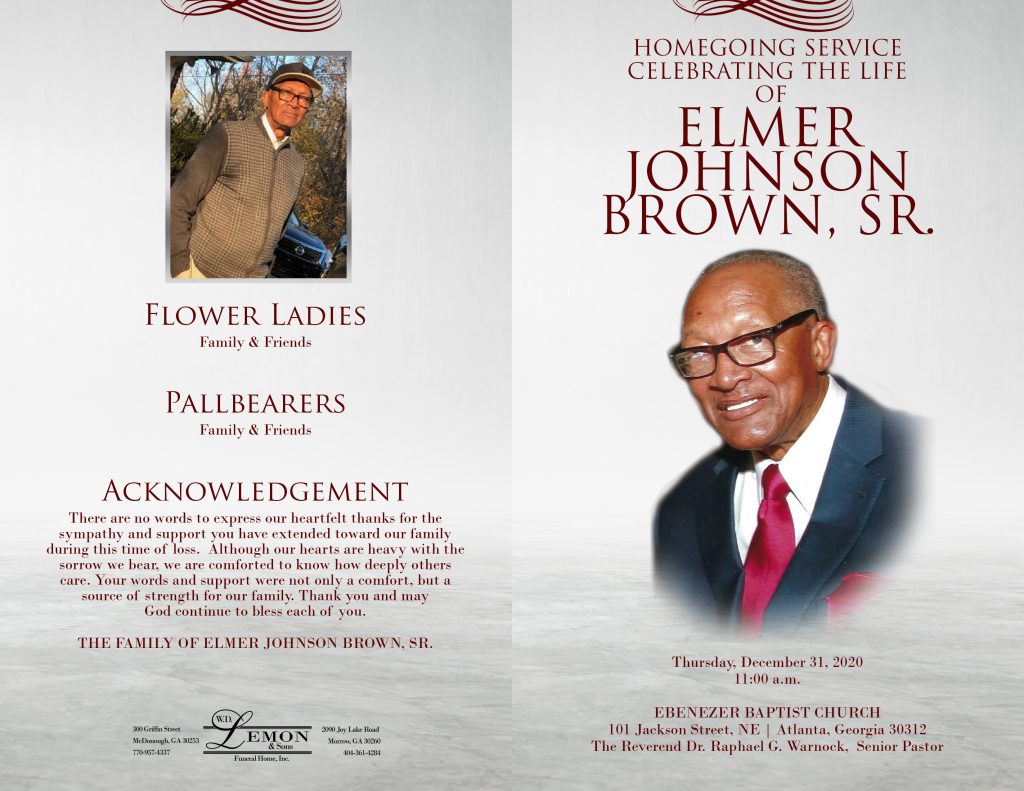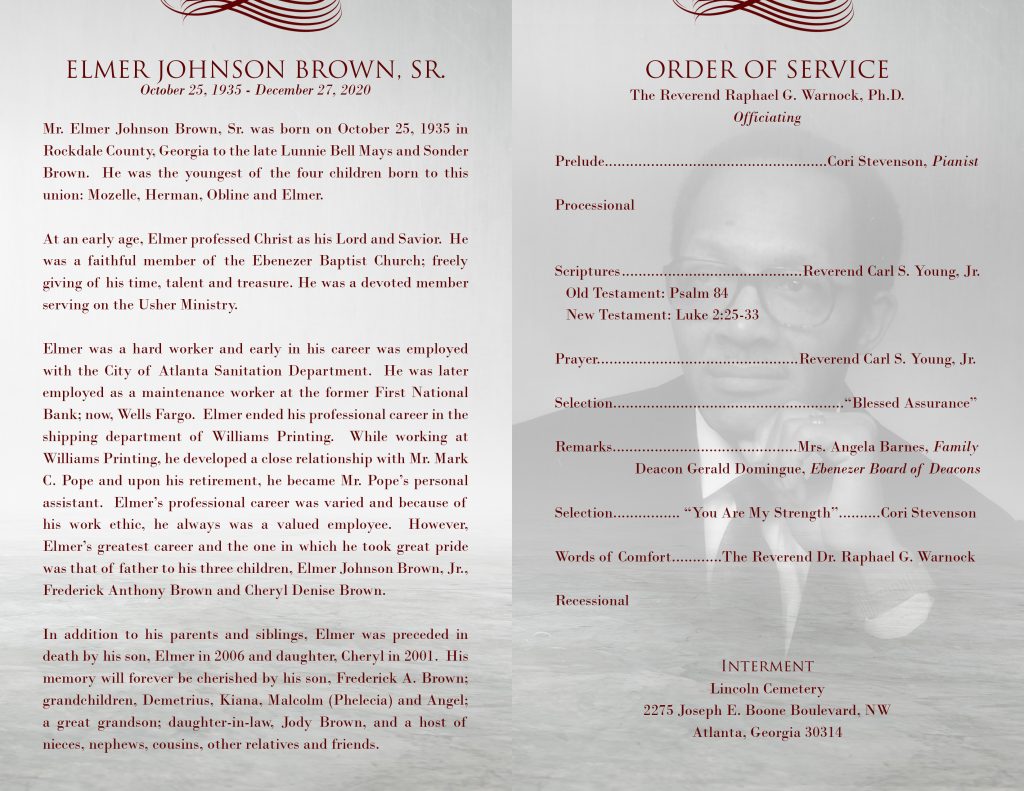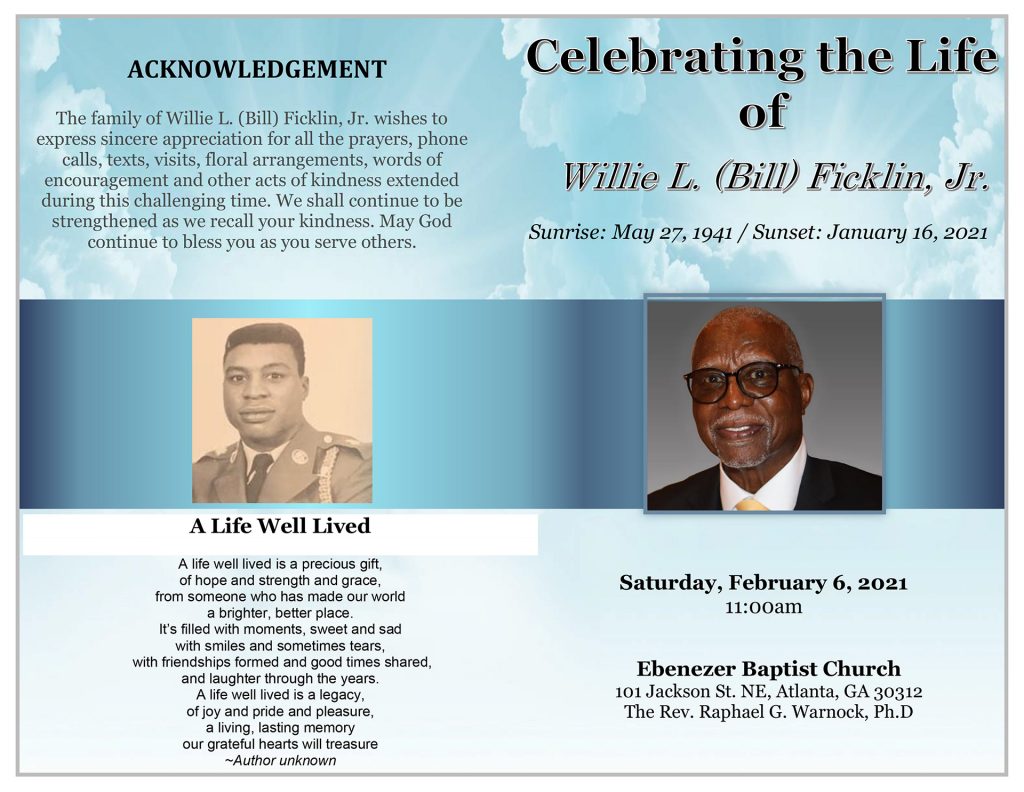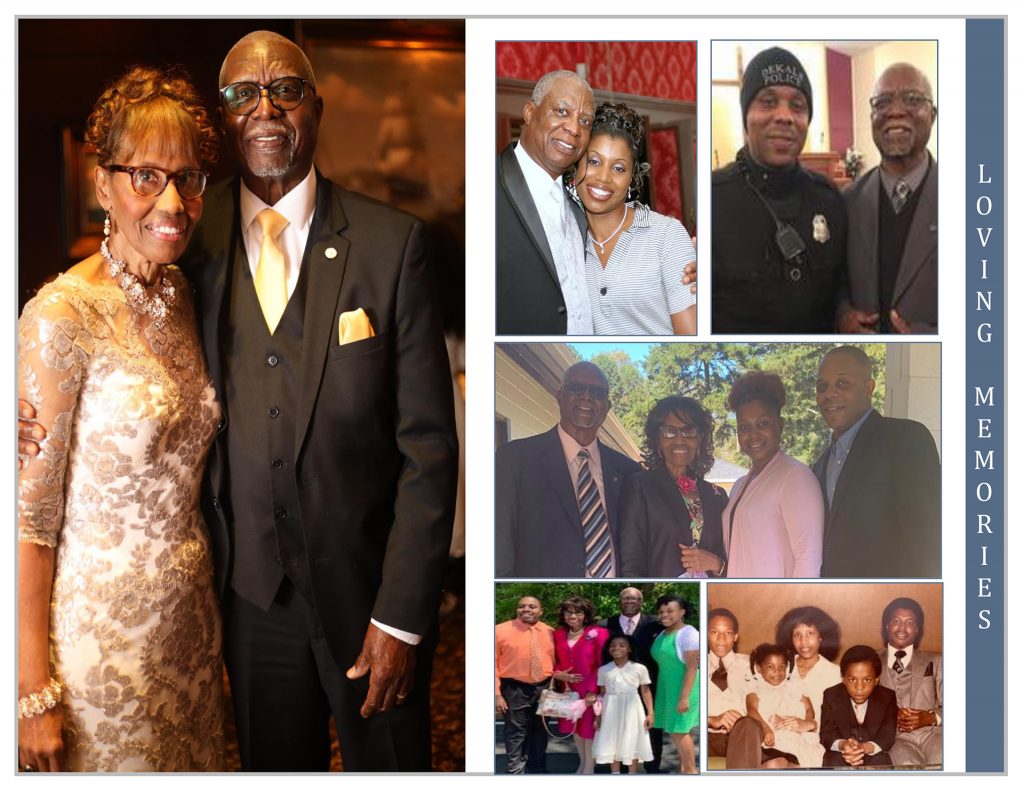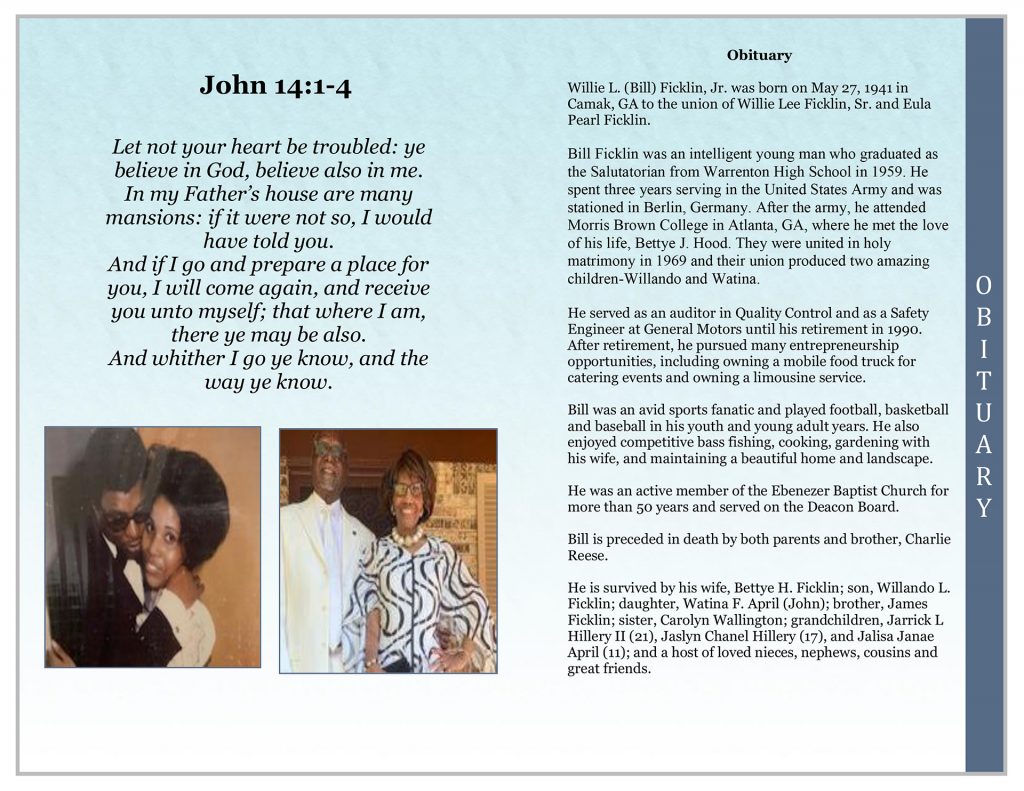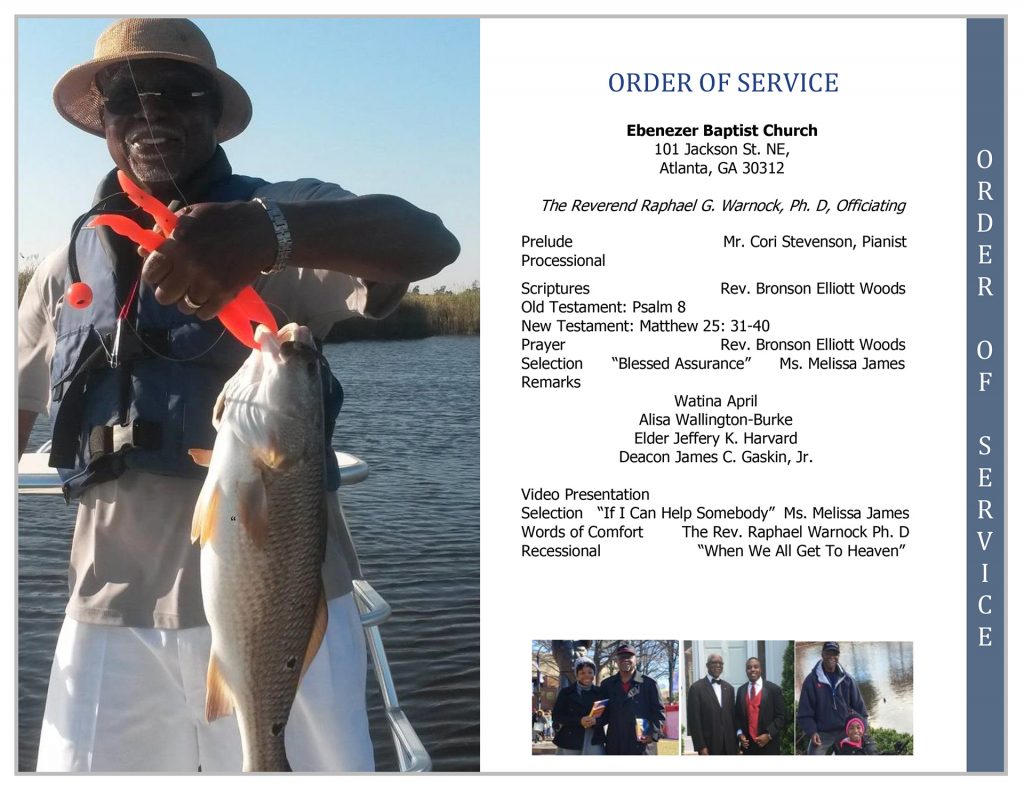Throughout its long history, Ebenezer Baptist Church, located in Atlanta, Georgia, has been a spiritual home to many citizens of the “Sweet Auburn” community. Ebenezer was founded in 1886, nine years after reconstruction ended. A band of thirteen faithful people united under the leadership of the Rev. John A. Parker. Rev. Parker served as Ebenezer’s first pastor at the original site on Airline Street from 1886 to 1894.
On March 14, 1894, the Rev. Adam Daniel Williams was called to pastor Ebenezer, a struggling church with seventeen members on the roll. During his first year as pastor he was responsible for adding approximately sixty-five members to the church. Rev. Williams liquidated the mortgage, purchased land near downtown Atlanta on McGruder Street and built a new church. With the continued growth of the congregation, the church on McGruder Street soon became too small. In 1900, continued growth lead to the purchase of Fifth Church on Bell and Gilmer Streets. Services continued there until 1914 when the congregation moved to the basement level of the Auburn Avenue site. The congregation moved their worship services to a storefront at 444 Edgewood, in around 1918, while the upper level auditorium was being completed. This construction was completed in 1922. The historic church has undergone several renovations including the addition of the Education Building adjacent to the church in 1956.
In 1980, the Martin Luther King, Jr., National Historic Site was established. The site is composed of several buildings located around the King home on Auburn Avenue in Atlanta’s historic Sweet Auburn district.
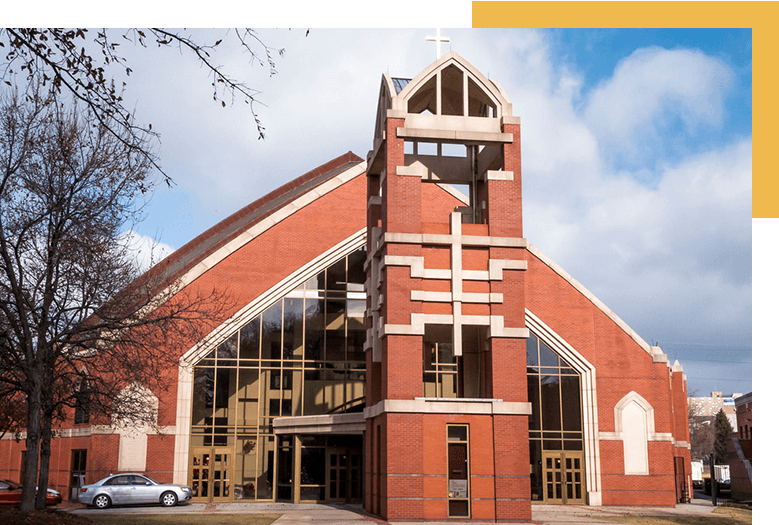
During the tenure of Rev. King, Sr., he had three co-pastors. In 1960 his oldest son, the Rev. Dr. Martin Luther King, Jr., joined his father as co-pastor, giving Ebenezer international stature. He remained in that position until his death in 1968. As a final farewell to his spiritual home Dr. Martin Luther King, Jr.’s funeral was held in the church.
Following the assassination of Dr. King, Jr. on April 4, 1968, the Rev. Alfred Daniel Williams King replaced his brother as Ebenezer’s second co-pastor. Rev. A. D. King’s tenure came to a close at his death in 1969, and was followed by Dr. Otis Moss in 1971.
The Rev. Martin Luther King, Sr. retired on August 1, 1975 after forty-four years of tremendous service to Ebenezer and the world. Guided by Dr. King’s suggestions, the congregation of Ebenezer called Dr. Joseph L. Roberts, Jr. to be its fourth Senior Pastor. Dr. Roberts served for thirty years. Aside from mentoring a number of young ministers, he led the congregation in the construction of a new sanctuary directly across the street from the historic Ebenezer site in 1999 – From Heritage to Horizon.
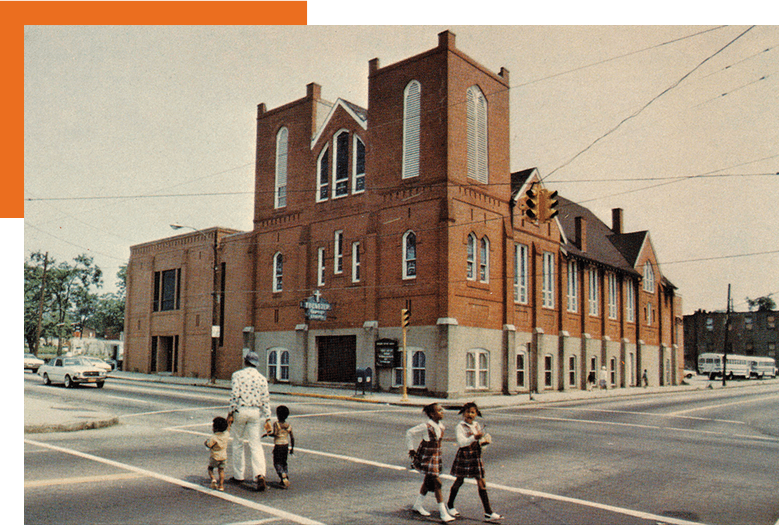
In 2000, a study of the church building resulted in the Ebenezer Baptist Church Historic Structure Report being issued by the National Park Service. This report served as a guideline for the restoration of the church.
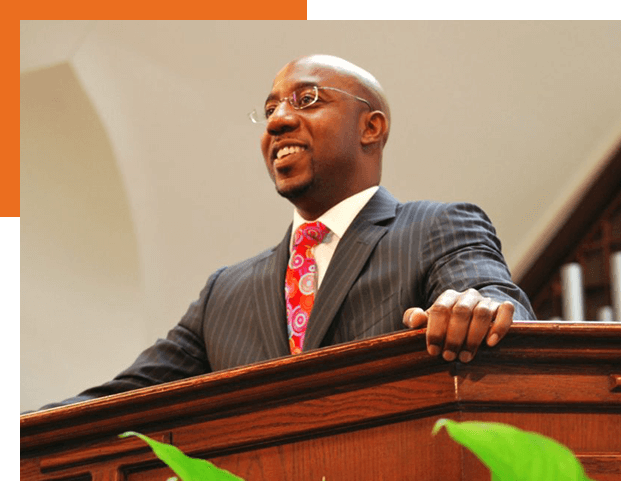
Today, Ebenezer Baptist, with a congregation of over 6,000, continues to serve the Atlanta community in the Martin Luther King Jr. National Historic Site under the dynamic leadership of Reverend Dr. Raphael G. Warnock–assuming the role of senior pastor in 2005. Dr. Warnock is only the fifth minister to lead the Ebenezer congregation in its 136 year history. One of his foremost accomplishments to date has been the completion of the Martin Luther King, Sr. Community Resources Complex. This facility houses the Martin Luther King, Sr. Community Resources Collaborative which provides support to the Atlanta community at large.

